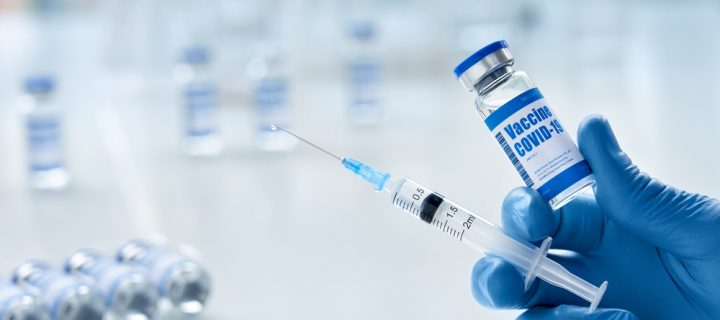The vaccines protect your from falling seriously sick with COVID-19 but beyond that, they are still being studied.
The vaccines to protect you against COVID-19 are here. At the time of this writing, both Pfizer-BioNTech’s and Moderna’s COVID-19 vaccines have been approved for emergency use in the US and Canada, and others are waiting in the pipeline for approval.
We have all heard these vaccines work, but exactly how effective are they, and what kind of protection do they really offer you? Here’s a look.
Pfizer/BioNTech Vaccine
The Pfizer-BioNTech vaccine is based on mRNA technology. This means it provides the genetic code for your own body to produce viral proteins similar to those of COVID-19. It doesn’t deal with any live virus, however. Once this vaccine is injected, your system produces an immune response against these proteins, allowing you to build immunity to COVID-19. This is without ever coming in contact with the virus.
According to the FDA, this vaccine starts working in your body right after you get the first dose. (You will need to get two doses, three weeks apart). It is said to be 95% effective at protecting you from falling seriously sick with the novel coronavirus. This falls into place one week after you receive the final dose of the vaccine.
Related: How to Avoid Bad Habits While Staying Home
Remember, this vaccine is only for adults, and cannot yet be given to people under 16 years of age. Pfizer is still testing the vaccine in younger age groups. Since growing bodies have different immune systems from adults, extra care needs to be taken to ensure the vaccine is safe for youth and children to take.
Of note is also the fact that officials still aren’t certain if this vaccine prevents people from spreading COVID-19. That’s still up for debate. Participants in Pfizer’s clinical trials didn’t show symptoms of being sick with the virus once they took the vaccine. Some people could have been asymptomatic however. Further study is being done to figure out exactly what level of protection Pfizer’s vaccine truly offers.
According to the Wall Street Journal, Pfizer is predicting it will produce up to 1.3 billion doses of its vaccine in 2021. Tens of millions of people in the US are expected to be vaccinated each month in 2021.
Moderna Vaccine
As with Pfizer’s, Moderna’s COVID-19 vaccine has been approved at the time of this writing for emergency use in the US and Canada. This vaccine is also based on mRNA technology, and is said to be extremely effective. According to the FDA, data has shown Moderna’s vaccine to be 94.1% effective at preventing you from falling sick with COVID-19, so it strikes just slightly lower than Pfizer’s concoction when it comes to the best “bang for your buck”.
What other differences exist between the two? Moderna has a slightly older cut-off age for its vaccine, and is currently approved for use in people 18 years of age and older, only. It also requires you to get two doses which are taken 4 weeks apart, in comparison to Pfizer’s 3-week spread.
Moderna has predicted that it will produce up to 1 billion doses of its COVID vaccine in 2021.
AstraZeneca Vaccine
AstraZeneca’s COVID-19 vaccine has not yet been approved for use anywhere at the time of this writing, but it soon will be. It is expected this vaccine will be approved for use in the UK in the last days of December 2020. It could be up for approval in the US by late January.
AstraZeneca’s coronavirus vaccine is different from the others listed here so far. It doesn’t rely so much on new technology but uses traditional vaccine development methods. As such, this vaccine is built upon a common cold virus that typically infects chimpanzees.
Related: How to Reduce Your Risk of Getting COVID-19 in a Car (According to Experts)
In developing the vaccine, the virus is modified so that it won’t make you sick, and then loaded with the COVID-19 spike protein. Once the vaccine is injected, your body detects it and starts building an immune response. This protects you against COVID-19.
AstraZeneca’s vaccine is said to be about 70% effective at protecting you against falling sick with COVID-19. Some clinical trials got better results than others with this vaccine, however, and so the exact effectiveness is uncertain. At times, this vaccine was found to be up to 90% effective.
How Things Could Play Out
Yes, experts keep changing their numbers when it comes to herd immunity. Here’s what we know. A study published in the American Journal of Preventive Medicine showed that, without any other health measures being implemented, about 75% of a given population will need to get the COVID-19 vaccine in order to snuff out the virus, and that this can only happen if the vaccine given is at least 80% effective.
The truth is, no one really knows how long these vaccines will protect us from COVID-19. If enough people get a vaccine however, there is a relatively good chance that the number of people dying from COVID-19 will drop significantly in a given population. By taking the vaccine, we can lead our lives back to normal. Hopefully manufacturing of the vaccines will continue to go as planned and 2021 will bring good news to the masses.
photo credits: insta_photos/Shutterstock.com












